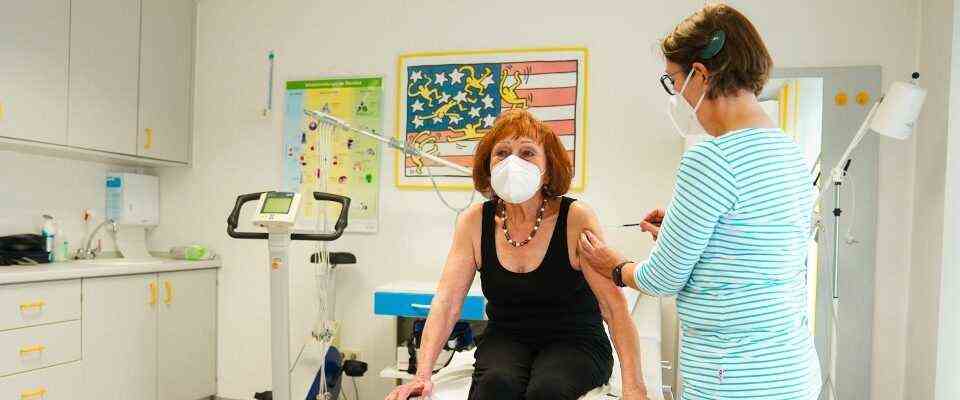From April, the family doctors will be involved in the vaccination campaign, and more vaccine will be delivered to the borders. The pharmacies also play a decisive role. The resolutions at a glance.
AIronically, the contact killer Corona brings them together more often than seldom before, albeit virtually: On Friday afternoon, the heads of government of the federal states met with Chancellor Angela Merkel (CDU) for the “vaccination summit” by telephone. The Prime Minister’s Conference should then continue on Monday. They want to talk about the lockdown there.
Ation meeting had been postponed because Federal Health Minister Jens Spahn (CDU) had temporarily suspended the administration of the Astra-Zeneca preparation on the advice of the Paul Ehrlich Institute (PEI). The reason for this was an accumulation of blood clots in the brains of some vaccinated people. Astra-Zeneca has been vaccinated again since Friday after the European Medicines Agency Ema assessed the benefits of the vaccine as greater than the risks on Thursday. Thereupon the PEI and Spahn announced that they would continue the vaccination campaign. For the medical profession, the institute published appropriate handouts on Friday.
For the vaccinated, Spahn and the health ministers of the federal states had previously decided to provide the information sheets with warning notices – handwritten if necessary. Reports came from the municipalities that the vaccination centers had actually resumed injections with Astra-Zeneca on Friday. The agreed dates would be kept. The suspended vaccinations were mostly replaced by other vaccines between Monday and Thursday. Where it was a question of second vaccinations with Astra-Zeneca, these would now be made up.
Now that this part of the Astra-Zeneca permanent construction site seems to have been completed, those responsible for vaccination want to focus on two things: on including the resident doctors in the campaign and the situation in the border regions in the west and east, where the infection rate is particularly high. The vaccination summit decided on Friday to involve the family doctors as early as April 5, i.e. from Easter Monday, and thus two weeks earlier than initially targeted.
So far, this has been hampered by the fact that there was too little vaccine , at the beginning of April there would be three million doses a week. The federal states have already secured 2.25 million of these for their vaccination centers. The rest is not enough to supply the practices across the board. To mitigate this situation, the resolution now provides for part of the expected additional delivery quantities from the manufacturer Biontech / Pfizer to be used in the practices, more precisely 250,000 of 580,000 cans.
20 appointments a week
You could not vaccinate everyone with it everywhere, anytime, but at least in each of the 50,000 practices about 20 times a week; together that’s a million units. The doctors should specifically invite particularly “vulnerable” patients. As soon as the amount of vaccine increases, specialists and company doctors are also called in.
The prioritization also applies in the practices as a “basis that can be used flexibly”. This is a compromise to accommodate Bavaria, which initially only wanted to see the prioritization as a “recommendation”. When presenting the results, Chancellor Angela Merkel ( CDU ) said that this regulation would make it easier, for example, to flexibly inoculate unused cans in the evening.

